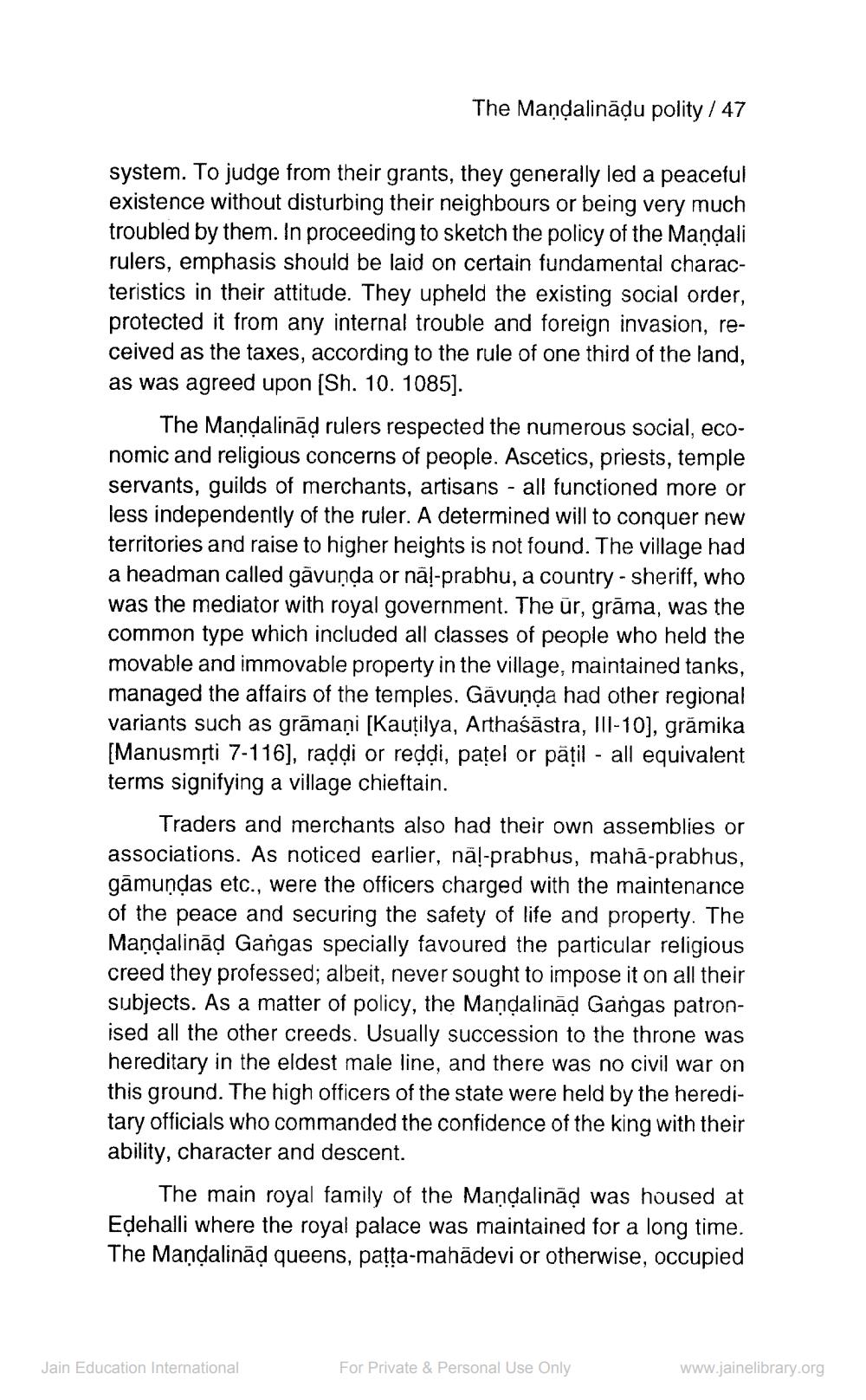________________
The Mandalinādu polity / 47
system. To judge from their grants, they generally led a peaceful existence without disturbing their neighbours or being very much troubled by them. In proceeding to sketch the policy of the Mandali rulers, emphasis should be laid on certain fundamental characteristics in their attitude. They upheld the existing social order, protected it from any internal trouble and foreign invasion, received as the taxes, according to the rule of one third of the land, as was agreed upon (Sh. 10. 1085).
The Mandalinād rulers respected the numerous social, economic and religious concerns of people. Ascetics, priests, temple servants, guilds of merchants, artisans - all functioned more or less independently of the ruler. A determined will to conquer new territories and raise to higher heights is not found. The village had a headman called gāvunda or nā!-prabhu, a country - sheriff, who was the mediator with royal government. The ūr, grāma, was the common type which included all classes of people who held the movable and immovable property in the village, maintained tanks, managed the affairs of the temples. Gävunda had other regional variants such as grāmaņi [Kautilya, Arthaśāstra, III-10), grāmika [Manusmrti 7-116], raddi or reddi, pațel or pāțil - all equivalent terms signifying a village chieftain.
Traders and merchants also had their own assemblies or associations. As noticed earlier, nā!-prabhus, mahā-prabhus, gāmundas etc., were the officers charged with the maintenance of the peace and securing the safety of life and property. The Mandalinād Gangas specially favoured the particular religious creed they professed; albeit, never sought to impose it on all their subjects. As a matter of policy, the Mandalinād Gangas patronised all the other creeds. Usually succession to the throne was hereditary in the eldest male line, and there was no civil war on this ground. The high officers of the state were held by the hereditary officials who commanded the confidence of the king with their ability, character and descent.
The main royal family of the Mandalinãd was housed at Edehalli where the royal palace was maintained for a long time. The Mandalinãd queens, patta-mahādevi or otherwise, occupied
Jain Education International
For Private & Personal Use Only
www.jainelibrary.org




